In a world where losing your car feels like misplacing your favorite sock, vehicle tracking systems swoop in like superheroes. Imagine knowing exactly where your car is at all times, even if it tries to play hide-and-seek. With these nifty gadgets, gone are the days of frantic searches and wild goose chases.
Whether it’s for personal peace of mind or keeping tabs on a fleet of vehicles, tracking systems are the unsung heroes of modern transportation. They offer real-time updates, route optimization, and even the ability to monitor driving habits. So, why let your vehicle roam free when you can keep it on a tight leash? Buckle up as we dive into the world of vehicle tracking systems and discover how they can transform the way you think about your ride.
Table of Contents
ToggleOverview Of Vehicle Tracking Systems
Vehicle tracking systems enable users to monitor the location and movements of vehicles. These systems provide valuable insights for individuals and businesses alike.
Definition And Purpose
Vehicle tracking refers to the use of technology to determine the location of a vehicle in real-time. The primary purpose encompasses enhancing security, improving fleet management, and optimizing routes. For example, businesses utilize tracking systems to minimize fuel costs and streamline logistics. In personal use, tracking enhances safety by allowing owners to locate their vehicles quickly if stolen.
Types Of Vehicle Tracking Systems
Various types of vehicle tracking systems exist to meet different needs. Active tracking systems provide real-time location data, making them ideal for fleet management. Passive systems store location data for later retrieval, which suits users who don’t need continuous updates. GPS-based systems are the most common, allowing accurate positioning and navigation. Also, RFID tracking relies on radio waves to identify and locate vehicles at short ranges. Finally, smartphone-based applications offer convenient tracking through personal devices, appealing to individual users.
Benefits Of Vehicle Tracking Systems
Vehicle tracking systems offer numerous advantages that improve both personal and business transportation. Enhanced efficiency and security represent two key benefits.
Improved Fleet Management
Improved fleet management results from real-time data access. Fleet managers monitor vehicle locations, optimizing routes to reduce fuel costs. Accurate data helps in identifying delays and responding promptly. Businesses enhance overall productivity through efficient resource allocation. Furthermore, tracking systems provide maintenance alerts, ensuring vehicles remain in top condition. By monitoring driver behavior, companies can implement training programs for safety and efficiency.
Enhanced Security Features
Enhanced security features protect both vehicles and assets. Real-time tracking allows for quick recovery of stolen vehicles. Alerts notify owners of unauthorized movement, providing an added layer of protection. GPS tracking also aids in monitoring driver activity, reducing risks associated with reckless driving. Notifications trigger when vehicles enter or exit predefined zones, known as geofencing. This capability aids businesses in securing valuable cargo and enhances personal vehicle safety. Overall, these systems instill greater confidence in vehicle owners and fleet managers.
How Vehicle Tracking Systems Work
Vehicle tracking systems employ the latest technologies to provide accurate location data for vehicles. Users gain insights into their assets through a combination of advanced tools and methodologies.
GPS Technology
GPS technology serves as the backbone for most vehicle tracking systems. Satellites send signals to GPS receivers installed in vehicles, allowing for precise location determination. The system calculates positions by triangulating signals from multiple satellites. Users receive continuous updates about vehicle movements through this technology. Many businesses rely on these systems to enhance their logistics and route planning. Reliable tracking ensures accountability and visibility for fleet operators.
Real-Time Tracking Capabilities
Real-time tracking capabilities enable users to monitor vehicle locations instantly. This feature provides immediate access to movement data, enhancing operational efficiency. Fleet managers can respond promptly to unexpected delays or detours, optimizing routes as conditions change. Notifications alert users about unauthorized movements, adding an extra layer of security. Enhanced visibility improves decision-making processes, especially for businesses managing multiple vehicles. Users track driving behavior, ensuring compliance with safety protocols along the way.
Key Features To Consider
Choosing a vehicle tracking system involves assessing several key features. Understanding these features ensures optimal selection and performance.
User Interface And Accessibility
User interface design plays a critical role in the effectiveness of vehicle tracking systems. An intuitive layout simplifies the user experience, allowing quick access to information. Accessibility across devices, including smartphones and tablets, enhances functionality for on-the-go users. Easy navigation combines with smooth operation to ensure users can manage multiple vehicles efficiently. Systems that support customization cater to individual user needs, enhancing overall satisfaction. Regular updates keep the interface modern, increasing usability.
Reporting And Analytics
Reporting and analytics functions add value to vehicle tracking systems. Comprehensive reports provide insights into vehicle performance, driving habits, and maintenance needs. Users benefit from historical data analysis, revealing trends over time. Automated alerts notify users about specific issues, such as speeding or idling, fostering proactive management. Analytics tools empower fleet managers with data-driven decision-making, optimizing routes and enhancing efficiency. Visual representations, like charts and graphs, make complex data easily digestible for users.
Popular Vehicle Tracking Systems On The Market
Several vehicle tracking systems stand out in today’s market, offering a variety of features for diverse user needs. Businesses and individuals can choose from these advanced options to enhance their vehicle management and security.
System A
System A stands out with exceptional real-time tracking capabilities. Users appreciate the easy-to-navigate interface that simplifies monitoring. Its GPS technology provides precise locations, ensuring fleet managers can optimize routes effectively. Custom alerts also notify users about unauthorized movements. Customers highlight the reliability of this system, making it a preferred choice for businesses. Maintenance reminders contribute to prolonging vehicle life, increasing overall efficiency. Integration with existing fleet management software enhances its usability and functionality.
System B
System B appeals to users looking for advanced analytics features. This system excels in data reporting, allowing users to assess driving habits and vehicle performance. Users can receive automated alerts for significant events, improving responsiveness to potential issues. Enhanced geofencing capabilities enable users to define safe zones, receiving notifications when vehicles stray outside these areas. Strong customer support and regular updates further enhance user experience. Many businesses prefer this option for its scalability, accommodating various fleet sizes easily. Robust security features, including real-time tracking, ensure assets remain protected.
Conclusion
Vehicle tracking systems are transforming the way individuals and businesses manage transportation. With their ability to provide real-time updates and enhance security, these systems offer invaluable support for both personal and fleet use. The integration of advanced features such as analytics and automated alerts ensures users can make informed decisions that improve efficiency and safety.
As technology continues to evolve, the importance of vehicle tracking will only grow. Choosing the right system tailored to specific needs can lead to significant benefits, whether for personal peace of mind or streamlined business operations. Embracing vehicle tracking technology is a smart move for anyone looking to enhance their transportation experience.




